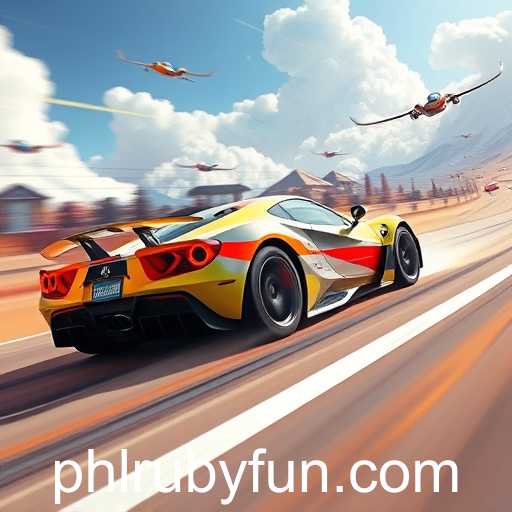Explore the dynamic world of racing games, their history, and the influence of technology on their development.
In the realm of video gaming, few genres have captured the exhilaration of speed and competition quite like racing games. Having evolved significantly since their inception, racing games have become a testament to technological innovation and imaginative game design. From rudimentary pixels navigating monochrome tracks to today's hyper-realistic simulators, the trajectory of racing games has been one of stunning advancement.
The journey began with iconic titles like 'Pole Position' and 'Out Run', games that laid the foundational framework for subsequent generations. These early pioneers offered players their first taste of digital automotive control. With simple graphics and rudimentary physics, their charm lay in the pure thrill of speed and the joy of mastering virtual tracks.
As technology advanced, so too did the complexity and immersion offered by racing games. The arrival of 3D graphics was a pivotal moment, enabling franchises like 'Gran Turismo' and 'Need for Speed' to deliver unprecedented levels of detail and realism. Cars were no longer just abstract representations; they began to mimic real-world counterpoints in appearance and performance, creating a more authentic driving experience.
In recent years, the genre has embraced innovations like virtual reality and motion simulation, pushing boundaries further by offering players not just races to win, but experiences to live. VR technology has allowed gamers to step into their vehicles, blurring the lines between the virtual and the real. Concurrently, motion simulator rigs have introduced physicality to these digital endeavors, engaging drivers in full-body experiences of high-stakes racing.
The esports boom has also left an indelible mark on racing games. Titles such as 'iRacing' and 'F1 2023' have transformed competitive racing gaming into a spectator sport, complete with professional leagues and worldwide championships. This has not only increased the social dimension of racing games but also spurred development focused on precision, rewarding skill and strategy to a degree never previously seen.
In the context of online platforms, 'phlruby' has emerged as a noteworthy keyword within racing game communities, illustrating the niche yet passionate fanbases that such games cultivate. As gaming forums and enthusiast sites grow, so does the discourse around preferred tracks, the best cars, and optimal strategies, with keywords like 'phlruby' reflecting community-specific lingo that helps fans congregate and communicate around shared interests.
From the early days of arcade machines to cutting-edge simulators and the communal buzz of esports, the evolution of racing games is a testament to how far technology and creativity can propel a genre. Whether seeking the nostalgic thrill of classic arcade speed or the intense simulation of modern titles, racing games continue to captivate and draw players into their high-paced and exciting worlds.




